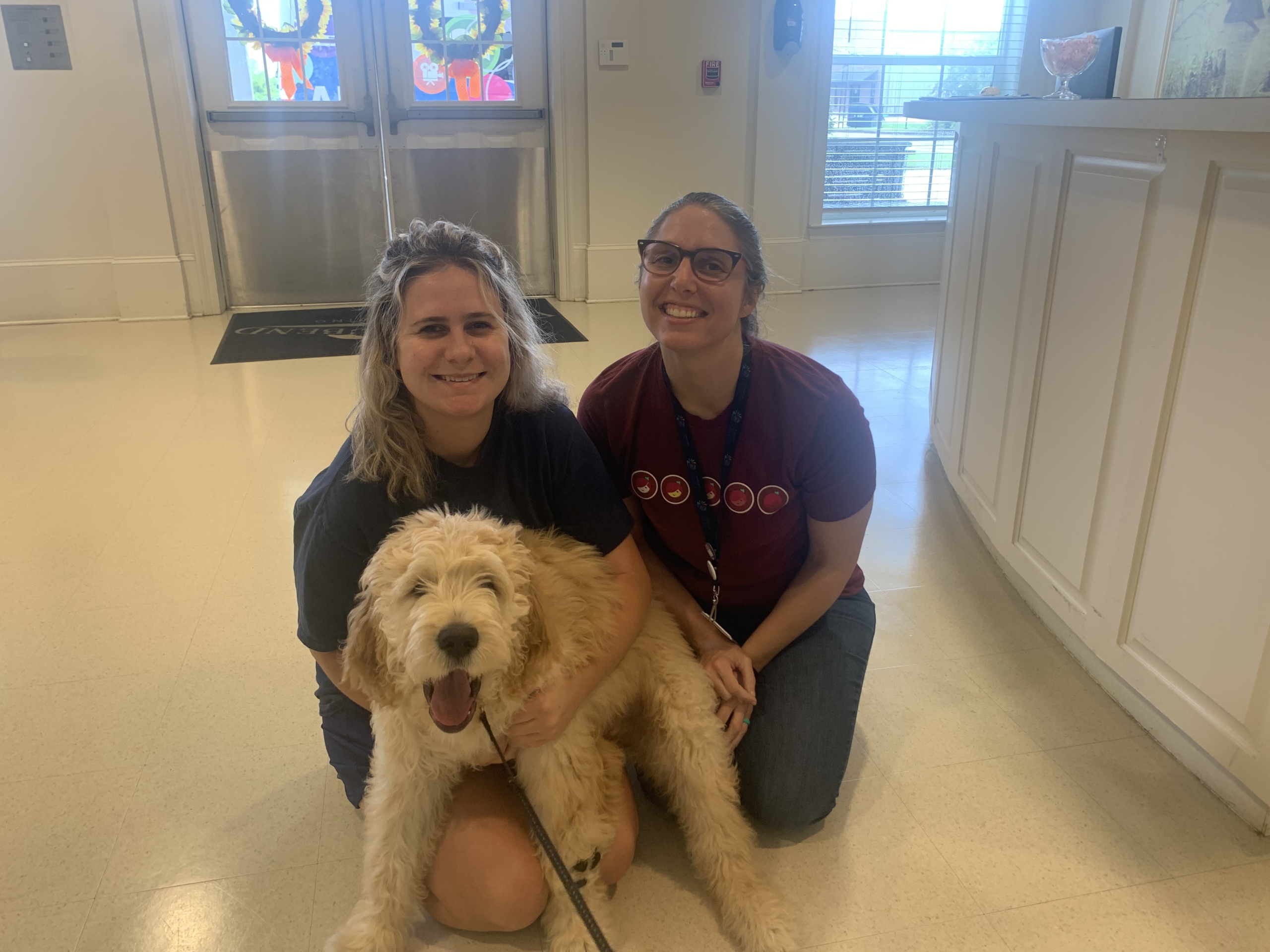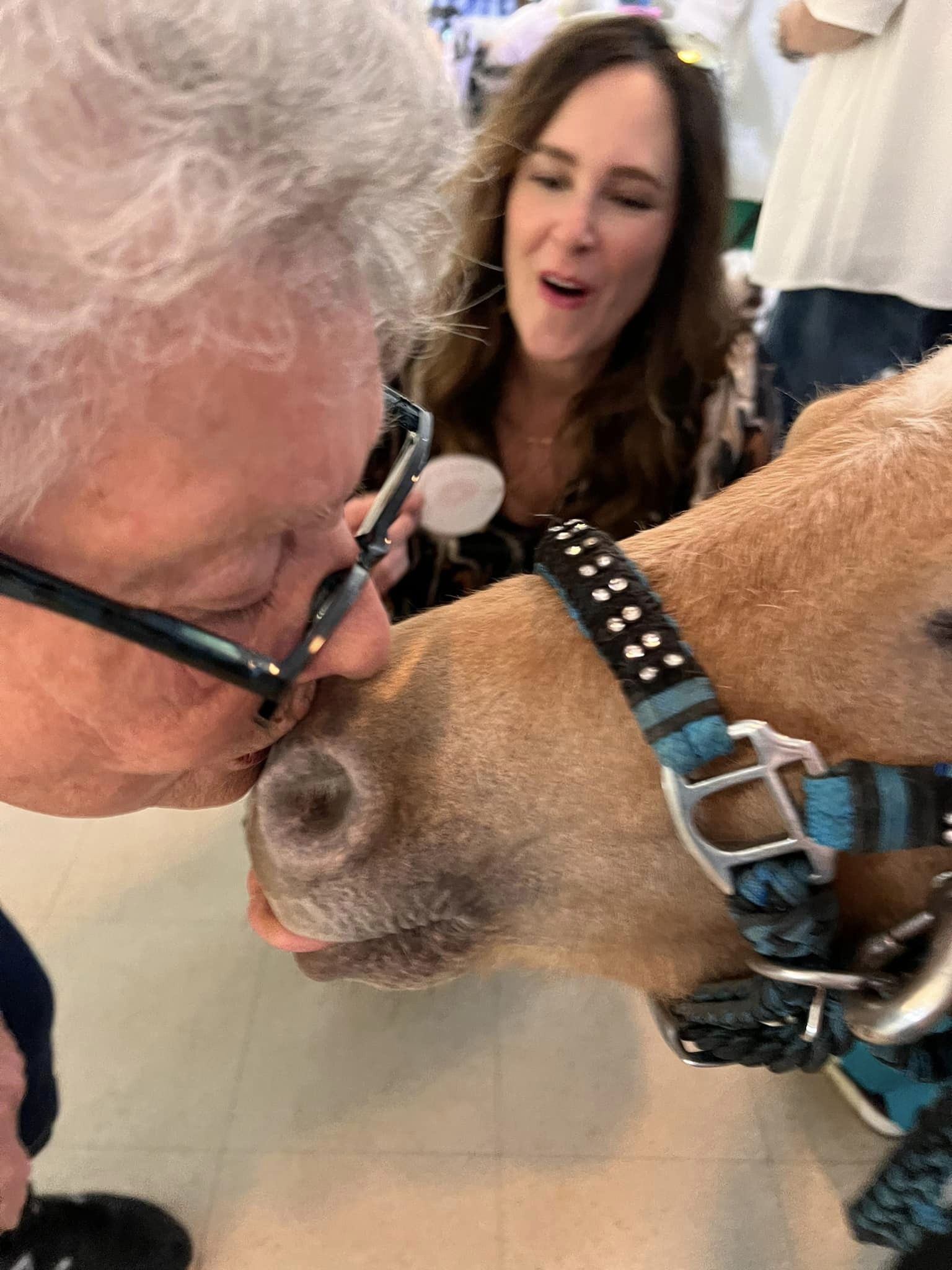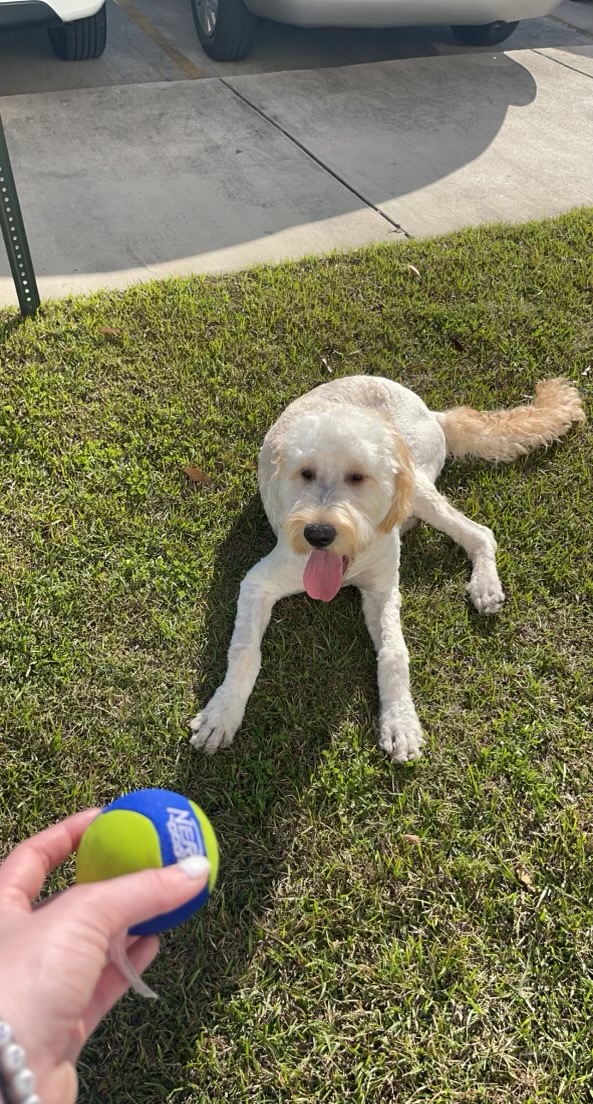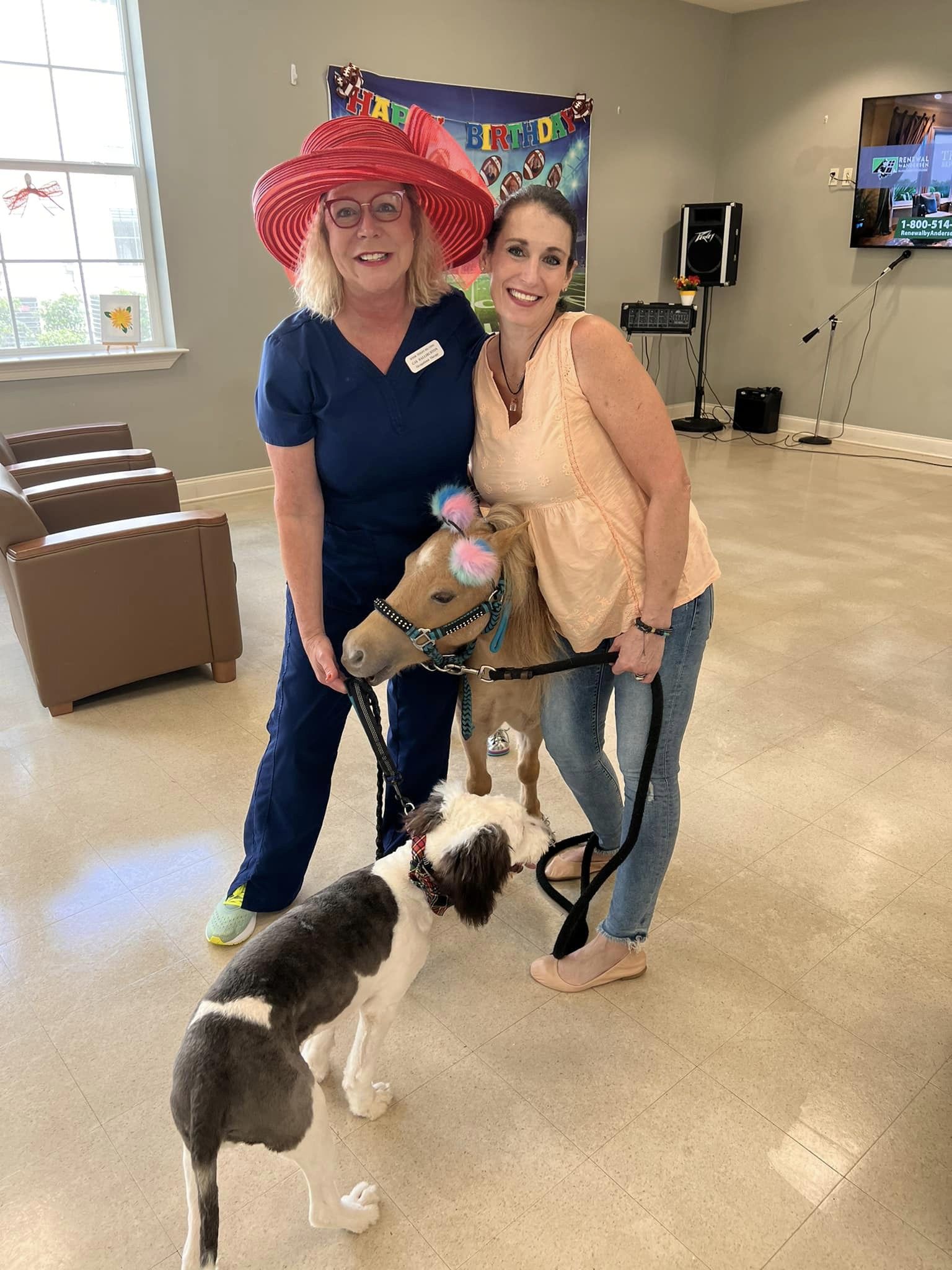Pet therapy or animal-assisted therapy (AAT) is a guided interaction between a person, a trained animal, and the animal’s handler. Pet therapy is used to help someone recover from or cope with a mental problem or health disorder. The most common pet therapy animals are dogs and cats; however, fish, guinea pigs, horses, and other animals that meet screening criteria may be used.
Pet therapy builds on the pre-existing bond between a human and an animal. It has many physical, emotional, and psychological benefits:
- Lessens depression and anxiety
- Decreases loneliness and isolation
- Improves and maintains motor skills
- Brings comfort
- Diminishes emotional pain in seniors
- Reduces stress
- Stabilizes blood pressure
- Reduces risk of heart disease, heart attack and stroke
- Diminishes overall physical pain
- Encourages socialization/communication
- Helps person focus and stay in the present
And much more!
Seniors in assisted living facilities like Francois Bend, veterans with post traumatic stress disorder, stroke victims, people with mental health disorders, and people undergoing physical therapy to regain motor skills are just a few examples of who can benefit from pet therapy.
Are there risks?
Of course. Every medical treatment has its risks. The main risks of pet therapy are safety and sanitation. However, the risk of injury from pet therapy is relatively low with a suitable animal that has undergone and passed the training and screening criteria. In order to be a therapy animal, an animal and its handler must undergo the following:
- A physical examination from a vet to ensure that they are disease free
- An obedience training course
- An instructional course for the handler about interaction with people
- An evaluation of the animal’s temperament and behavior with the handler
- A certification from a sponsoring organization
We have seen the benefits of pet therapy firsthand since incorporating it into our daily lives here at Francois Bend. We have seen improvement in our residents’ moods, motor skills and much more thanks to our wonderful pet therapists like Benny and Knox.






For more information on pet therapy and to see if it is right for you or your loved one, please consult with your doctor.

